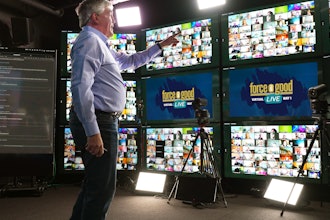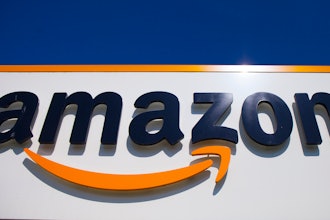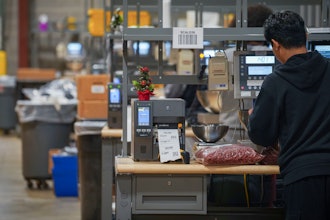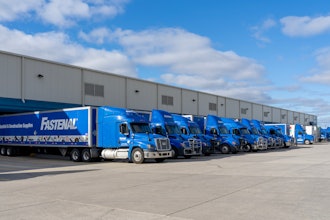
On May 28th, Industrial Distribution hosted a webinar titled "The Future of the Independent" (now available on demand here). Jack Keough was joined by Dan Ahuero, Vice President of Mergers & Acquisitions at The United Distribution Group; Jennifer Judge Murphy, President of NetPlus Alliance; and Steve Short, President & CEO of Updike Supply Company, to discuss the changing marketplace and how independent distributors still fit in the mix. The audience asked an overwhelming number of questions that our panelists couldn't get to in the time allotted, so here are their follow-up answers.
On Competition
Q: Should independents offer a volume rebate program to compete with Nationals?
Dan Ahuero: I think it depends on your knowledge of what the competition is offering. Many times, purchasing will let you know whether they expect a volume rebate. With an existing account, I like the concept of a growth rebate.
Q: Is a single location, family owned operation at the greatest risk in the MRO Marketplace?
Dan Ahuero: I believe this depends on where you are in your market (geographic) and whether large national concerns are after the business. I think the business can survive but needs to definitely find a niche with value-added services and other things the “big guys” won’t do. Also, becoming a “specialist” in certain products can help maintain and even grow business.
Q: Having run a small independent at one time, do you feel a stand-alone fluid sealing distributor can survive?
Dan Ahuero: I do think your business can survive but it may be difficult to grow. More and more today I see the “big boxes” getting into fluid sealing. Making sure your fabricating capability is the best in the market and looking at complementary products like fasteners could help maintain business. Looking to acquire or merge with another company with different product offerings would also be a possibility.
Q: How often do you review your strategy and its effectiveness?
Steve Short: On a strategic basis, at least annually - but we are constantly talking with customers and evaluating if we are on target in adding value, as they perceive it.
Q: What strategy do you have on training your employees on their daily duties and computer system?
Jennifer Murphy: I just watched this video yesterday from Slideshark and it was a great picture o the future of mobile devices and training.
On Marketing
Q: What are some different ways to market your company? / How do you market your company, other than networking events?
Steve Short: We look at a marketing presence for not only end user customers but also suppliers and competitors. We want to be the distributor of choice for suppliers, the employer of choice for employees and the competitor to fear by other distributors.
Involvement in the community; involvement with industry groups; trade shows where we have a booth presence larger than our actual size might dictate; press releases to local newspapers and business news outlets.
Q: How do you go about hiring an intern?
Jennifer Murphy: Local community colleges and universities will have information on their websites about their internship programs. Marketing students need experience, and many know nothing about distribution. This is a great industry, and there are a lot of companies out there that need marketing help, and graduates that need employment. Another great resource is ICP – Industrial Careers Pathways, who is working to build awareness of industrial distribution among young people. Their website: https://www.ptda.org/ptworkforce
Q: Can you explain more about what a professional employment organization (PEO) is and how it works?
Jennifer Murphy: A PEO or HRO (Human Resources Organization) transfers your employees to their payroll and becomes the employer of record, or co-employer. The business owner maintains the supervision, decision-making, and control of her employees including wage, scheduling, hiring, and review practices. The benefit to a small business is the value added services, including payroll, professional human resource services, employee manuals, employee training, health care benefit negotiations, consulting, and group discounts and compliance.
On Ecommerce
Q: For commodity related products, how is Amazon.com affecting the independents?
Steve Short: In general, e-commerce is another competitive threat that must be addressed by all distributors, independent or not. If the customer perceives the value in ecommerce convenience higher than the overall value proposition you provide, it could be trouble.
Jennifer Murphy: There is a great article written by Dirk Van Dongen, the President of NAW that is perfect, and is a very positive message for distributors: http://www.tedmag.com/news/Features/NAW-President-Dirk-Van-Dongen-Talks-AmazonSupply-Threat-With-tED-Magazine.aspx.
His most impactful statement is “Years ago, people said that disintermediation would be the demise of distribution,” he said. “It didn’t happen. Distributors learned to use the Internet as a sales and marketing tool. Customers didn’t flock to the Internet to buy stuff. Distributors have been around for many years because they have performed an essential set of functions for their customers. As long as they continue doing that, they’ll continue to be around and successful for a long time.”
Disintermediation was the term used by many industry observers who believed that because of the Internet, distributors would be bypassed in the buying process.
Relationships and relevance to the customer are the key attributes of an independent and distributors need to capitalize on these strengths. Documenting cost savings, growing across product offerings and staying educated will build loyalty and provide value that Amazon will never be able to provide. Van Dongen also refers to the Market Fairness Act (MFA) that would require online retailers to collect state sales taxes whether or not they would have a physical presence in that state. The MFA will make a tremendous difference for independents in states where the policy is adopted.
Q: How does the e-commerce affect your distributions?
Jennifer Murphy: There was another question asked about ‘What if your customers won’t take your in-person sales calls?’ The answer to this is, have an e-commerce solution. Send links to your site with product photos and descriptions and videos of product demos and applications. One NetPlus distributor, Jay Amstutz, of Ohio Power Tool, has his own blog and tests and video demos all of the products that he gets from his manufacturers. His blog has a huge following, of both his customers and an interested public audience. This builds traffic and social sharing of his site, and in turn increases the reach of his business beyond his circle of customers.
Social media is not only free, but also very powerful if you have a positive perception. For example, here’s how I explained Facebook for businesses to my 94 year-old Uncle Sam: His father was one of the founders of Ward Brothers Mill Supply, our family distribution business that NetPlus Alliance is founded on. I said, “Uncle Sam, imagine if Uncle Bill wanted one of the salesmen to put up a flyer in every customer’s break room about a new Stanley screwdriver set that Ward Brothers was running on special. The salesman would have to get in his car and drive around and put up the flyer all over town, and then the special would change and he would have to go out and take that flyer down the next day and put up a new one, and so on. Facebook is like a digital bulletin board. It appears in front of every friend and customer that you invite to it and even some people ask to see it. You can change the information as often as you like, and you can make your posts fun and relevant to your business. People post pictures and videos and your customers and friends can ‘like it’ and also ‘tack up’ their comments on anything that you post.” It’s just a different way of looking at it, and for the most part, it is free!
Q: Do you agree that the independents should be ecommerce capable in order to survive?
Jennifer Murphy: Yes, 100%. However, a distributor needs to find an e-commerce that fits the size and volume of their business and is aligned with their strategic plan. There are many solutions to fit distributors, from very sophisticated systems to a simple on-line catalog. Your presence on the Internet is important – everyone goes to Google to look for businesses, both local and national, and you need to be there as well. One NetPlus Alliance distributor, Don Chargin of Royal Supply, told me, “You can deliver technical expertise quicker with digital pictures and videos on how to use a product. The Internet is a great equalizer for independents if they embrace it and get proper help. You can compete more effectively if you have an e-commerce vision and strategy. Ours often changes, but we stick to our core principles and learn something new every day.”
Another great benefit of an e-commerce strategy is co-op marketing from your manufacturers. A NetPlus service e-commerce service provider, 48WS.com, shows distributors how to collect co-op funds from the suppliers they are featuring on their e-commerce sites so that it pays for itself.























